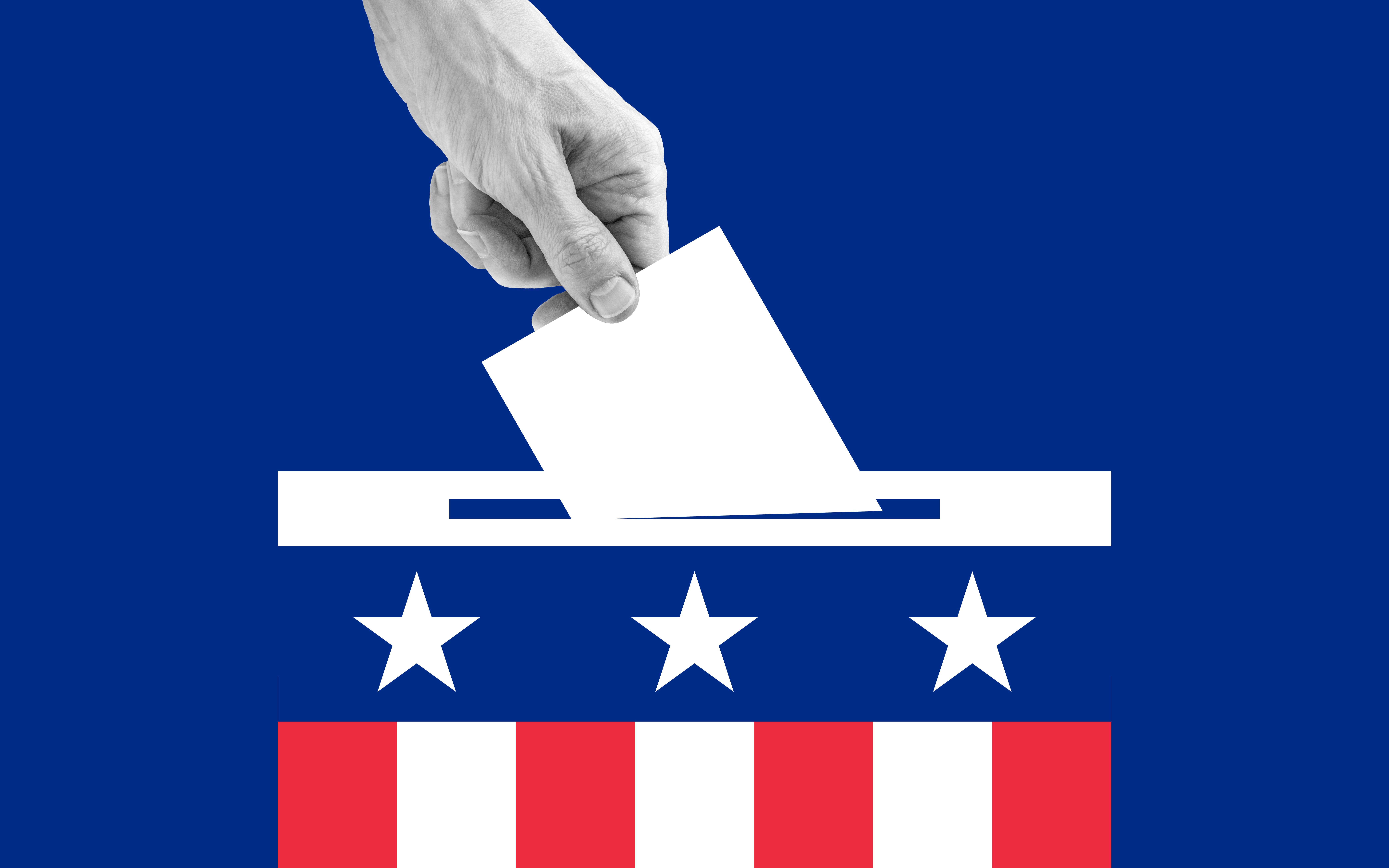Could a third-party candidate decide the 2024 election?
The sharpest opinions on the debate from around the web


A free daily email with the biggest news stories of the day – and the best features from TheWeek.com
You are now subscribed
Your newsletter sign-up was successful
A group of centrists met last week to discuss the group No Labels' $70 million plan to put a candidate on the ballot in all 50 states in the 2024 presidential election. The group calls its project an "insurance policy" in case the Democratic and Republican parties both nominate "unacceptable" candidates next year, in a race that could result in a rematch between the current frontrunners, President Biden and former President Donald Trump, now far out front in GOP primary polls. No Labels co-chair Benjamin Chavis in The Hill said that the group isn't out to be a spoiler. If it runs a candidate, he says, it will be out to win.
Former Sen. Joe Lieberman, who was the Democratic vice presidential nominee on Al Gore's 2000 ticket but is now an independent, attended last week's meeting. He said No Labels hadn't decided whether it found any particular candidate unacceptable yet. "You know, it might be that we will take our common-sense, moderate, independent platform to him and the Republican candidate and see which one of them is willing to commit to it," Lieberman told The Washington Post. "And that could lead to, in my opinion, a No Labels endorsement."
Lieberman knows from experience how third-party candidates can tip a race. He and Gore lost by 537 votes in Florida — a state where Green Party nominee Ralph Nader received more than 97,000 votes — and the state wound up tipping the 2000 race to George W. Bush. The Arizona Democratic Party has filed a lawsuit to block No Labels from getting a ballot spot on procedural grounds. Adam Green of the Progressive Change Campaign Committee has accused No Labels of trying "to play the role of spoiler." Politico reported that an internal memo by the Third Way, a Democratic think tank, said nominating a third-party centrist will just siphon votes from a Democrat and help the far-right put Trump back in the White House.
The Week
Escape your echo chamber. Get the facts behind the news, plus analysis from multiple perspectives.

Sign up for The Week's Free Newsletters
From our morning news briefing to a weekly Good News Newsletter, get the best of The Week delivered directly to your inbox.
From our morning news briefing to a weekly Good News Newsletter, get the best of The Week delivered directly to your inbox.
Democrats have reason to be afraid
No Labels claims it is out to win the White House, but "a third-party candidate would almost certainly not be able to win," said Eric Lutz in Vanity Fair. Democrats have reason to fear the ways an independent candidate could upset the race. A third option with somewhat broad appeal "could be damaging to Biden — particularly in hotly-contested states like Arizona, where he won by only a fraction of a percent last time around." If No Labels' entry in the race does change the results in just a few of the states where Biden narrowly beat Trump in 2020, it could "spoil the 2024 election at a particularly dangerous moment for democracy."
"One would think Republicans would naturally be ecstatic about any third-party candidacy that would more likely weigh down the Democratic ticket rather than the Republican," said Daniel Strauss in The New Republic. But a lot of Republican operatives and strategists have mixed feelings about how a No Labels ticket could change the electoral math. Some think it would be "undeniably a good thing regardless of who the nominee is." Others say "it's far too early to predict who would benefit more from a No Labels spoiler candidacy." If the No Label candidate supports abortion rights, for example, a third-party spoiler would siphon votes from the Democrat, but if the independent is against abortion, that's bad news for the GOP nominee.
Not just a spoiler?
Faced with the "looming fiasco" of being "forced in 2024 to choose between re-electing one of two unpopular presidents," it's perfectly understandable that somebody's searching for a better option, said Noah Rothman in National Review. Party stalwarts are panicked that "an ideologically amorphous third-party presidential bid" could outshine their nominees. Trump voters already have a "loose attachment" to the GOP, so it's the "GOP loyalists" who will "object most strenuously" to a No Labels alternative. And Democrats are upset because they know Biden is vulnerable.
Democrats are right to be worried, said Jazz Shaw in Hot Air. "The party out of power (currently the Republicans) will likely rally around the eventual nominee in an effort to take back the White House." But Democrats look likely to nominate "an elderly figurehead with an approval rating in the 30s" who has presided over "record inflation" and a series of other crises. "Even some Democrats and left-leaning liberals who would never cast a vote for Donald Trump or any other Republican might start taking a look at a third option. And it wouldn't take all that many people in a few swing states to sink Joe Biden's presidential ship."
A free daily email with the biggest news stories of the day – and the best features from TheWeek.com
Harold Maass is a contributing editor at The Week. He has been writing for The Week since the 2001 debut of the U.S. print edition and served as editor of TheWeek.com when it launched in 2008. Harold started his career as a newspaper reporter in South Florida and Haiti. He has previously worked for a variety of news outlets, including The Miami Herald, ABC News and Fox News, and for several years wrote a daily roundup of financial news for The Week and Yahoo Finance.
